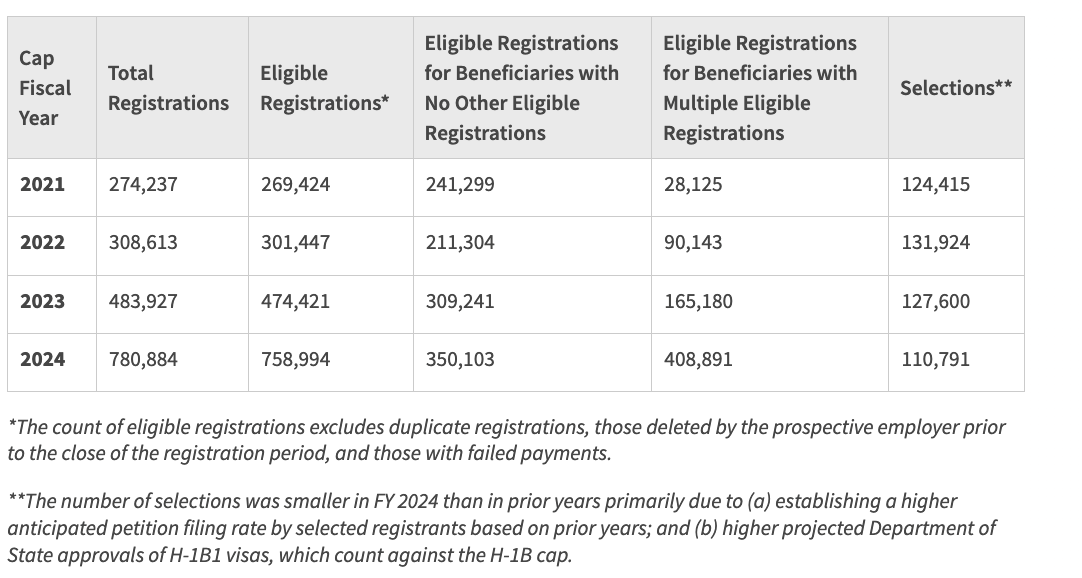The news we have all been waiting for is finally here. Today, July 31, 2023, the U.S. Citizenship, and Immigration Services (USCIS) announced that they have conducted a second lottery to select from previously submitted electronic registrations to reach the FY 2024 numerical cap.
At this time, USCIS has notified all prospective petitioners with selected registrations from this round of selection (the second lottery) that they are eligible to file an H-1B cap-subject petition for the beneficiary named in the applicable selected registration.
Only petitioners with selected registrations are eligible to file H-1B cap-subject petitions for FY 2024, and only for the beneficiary named in the applicable selected registration notice.
Please see the information below for a reminder about what you can expect now that the second lottery has been completed.
How will I know if I was selected in the second lottery?
Petitioners with selected registrations will have their myUSCIS online accounts updated to include a selection notice, which includes details of when and where to file. If you submitted your electronic registration with the assistance of an attorney, you must contact your legal representative/case manager to determine whether you were selected in the second randomized lottery.
 Visa Lawyer Blog
Visa Lawyer Blog











